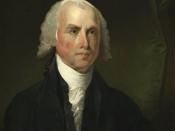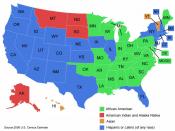The importance of theoretical frameworks is essential for understanding foundations for political science. The definition of the word framework is a theory which can be used as a lens to look at a set of facts. (E.g., journalist look at a set of facts that tell a story of what happened). These frameworks in political science help build a strong foundation and advocate a precise sense of racial balance in the political arena. A social scientist tries to organize a set of facts into systemic theoretical passion. The Social scientists are trying to accomplish the facts they create can be used to explain a theory that can be applied to other sets of facts. The importance of these frameworks helps people gather important information and compare and contrast their different strengths and weaknesses.
The first traditional and most dominant framework to examine is Pluralism.
Pluralism can generally be defined as group politics in a free market society.
Pluralism takes its roots from the founding of the nation. James Madison saw the United States as a stronger nation if there was conflict rather than a consensus. Madison points out in Federalist #10 that citizens would be divided into many factions that would compete for benefits. The chief cause of division when Madison wrote this was economics in origin, but now race has emerged as a major factor in dividing American society. Robert Dali founder of Pluralism modernizes Madison's theory into theory of American democracy to incorporate into the theory of pluralism.
Pluralism explains minority group politics in a process that attempts to show the strength of groups in the minority. In pluralism the theory assumes that there are non-cumulative inequalities in American politics. These inequalities would mean no group would be on the minority of a law being passed every time...


